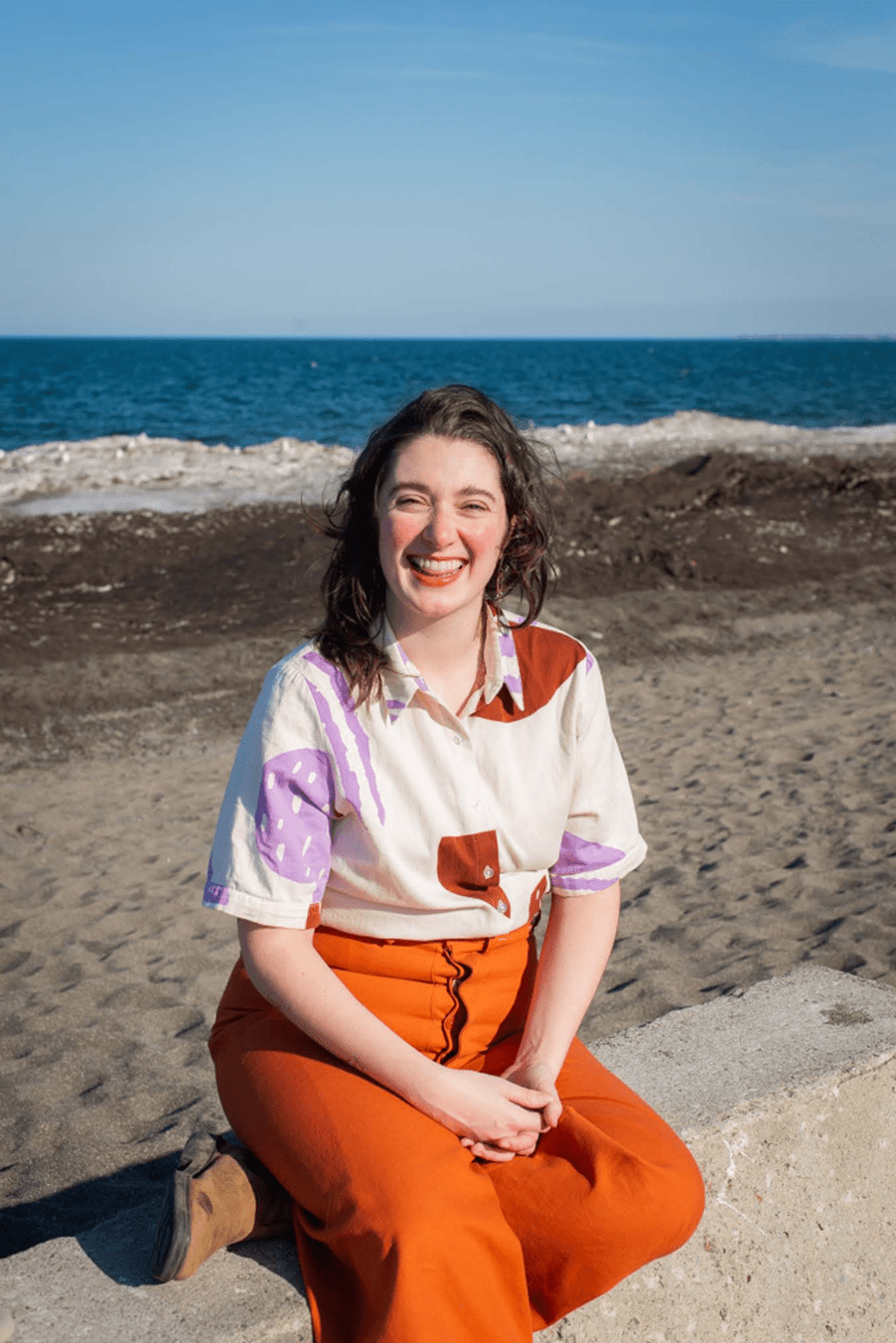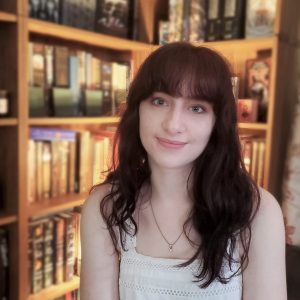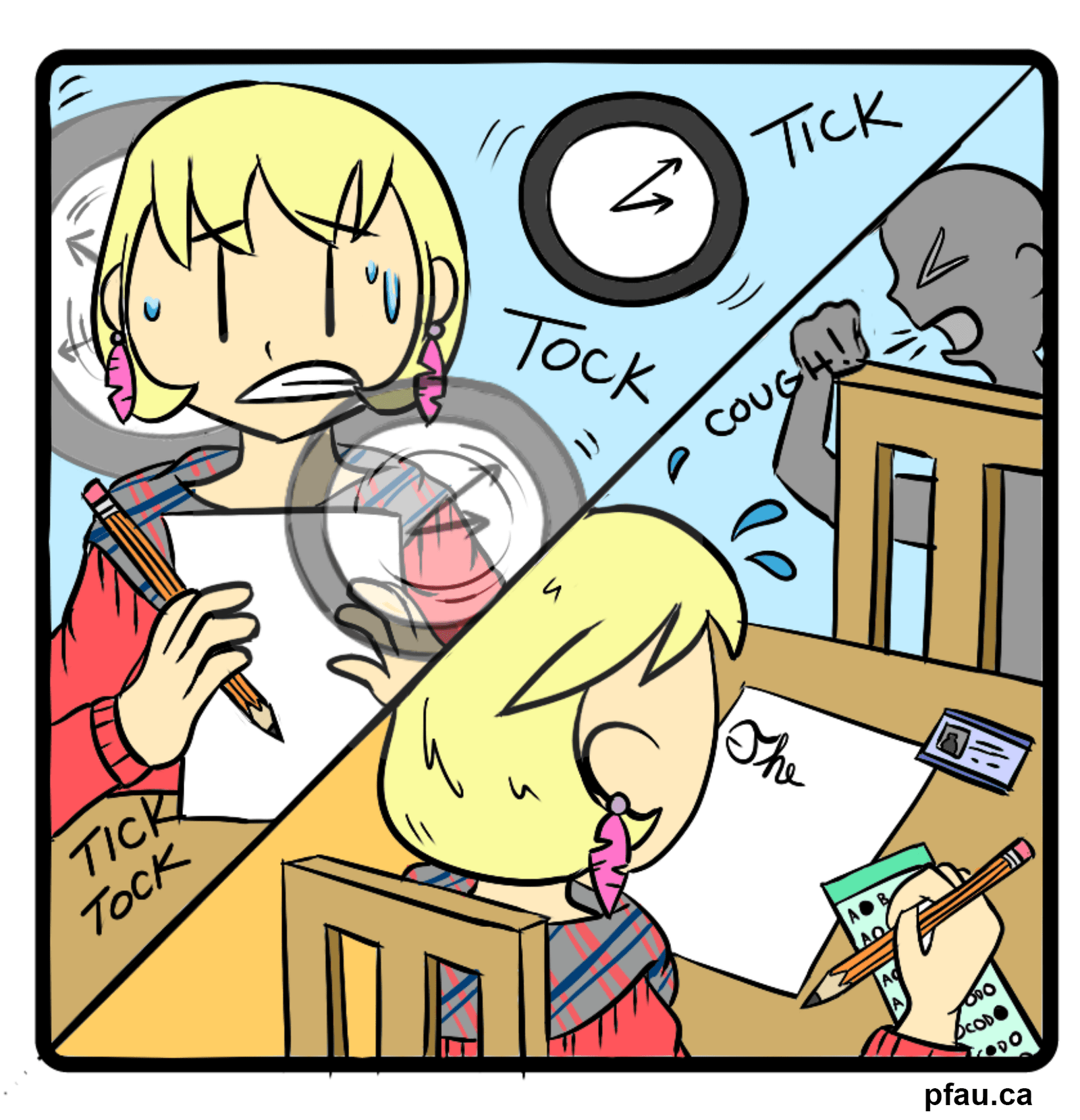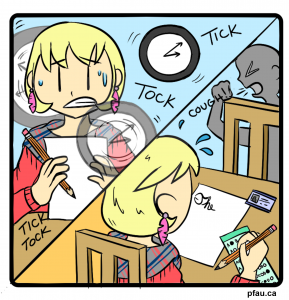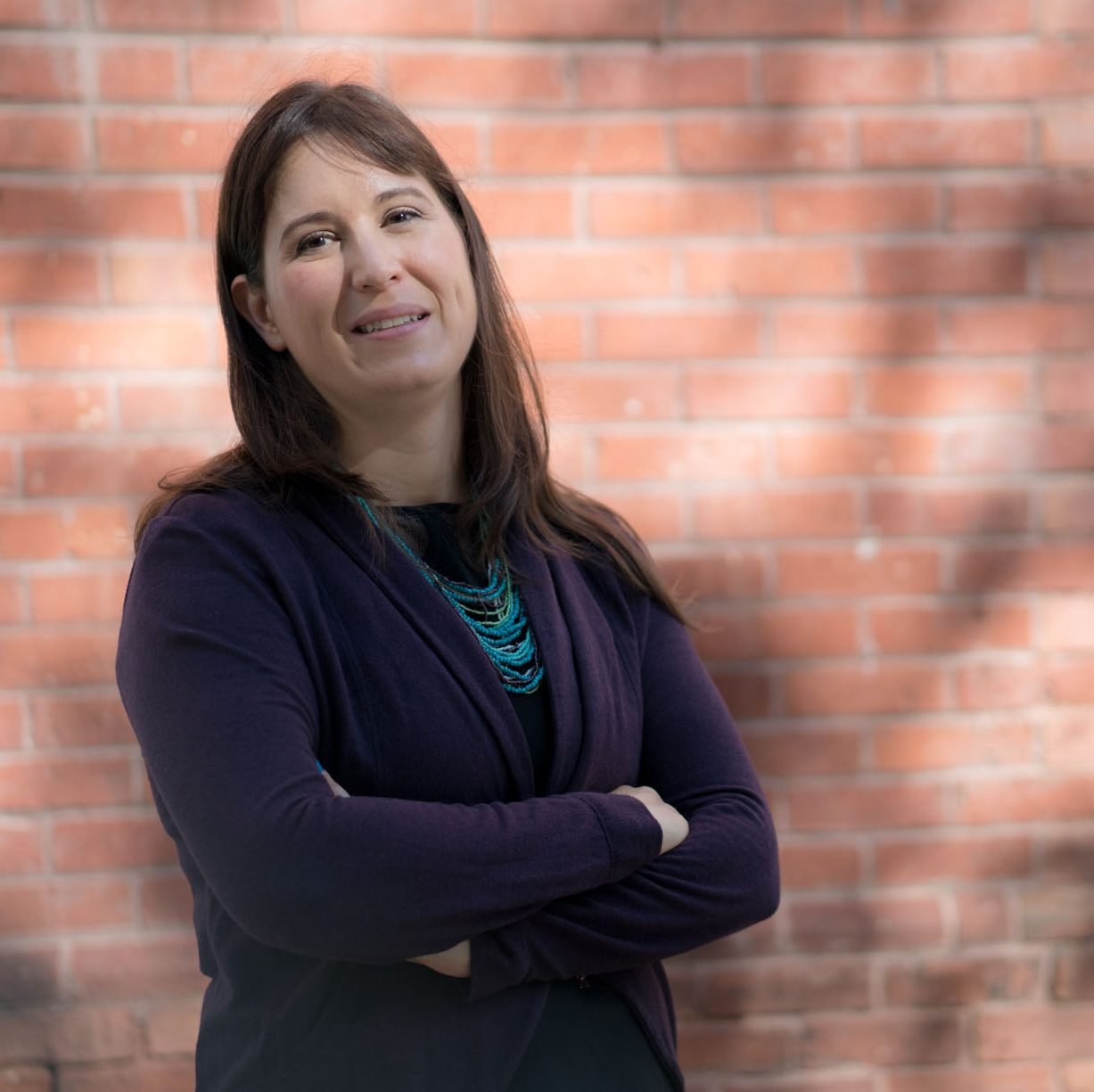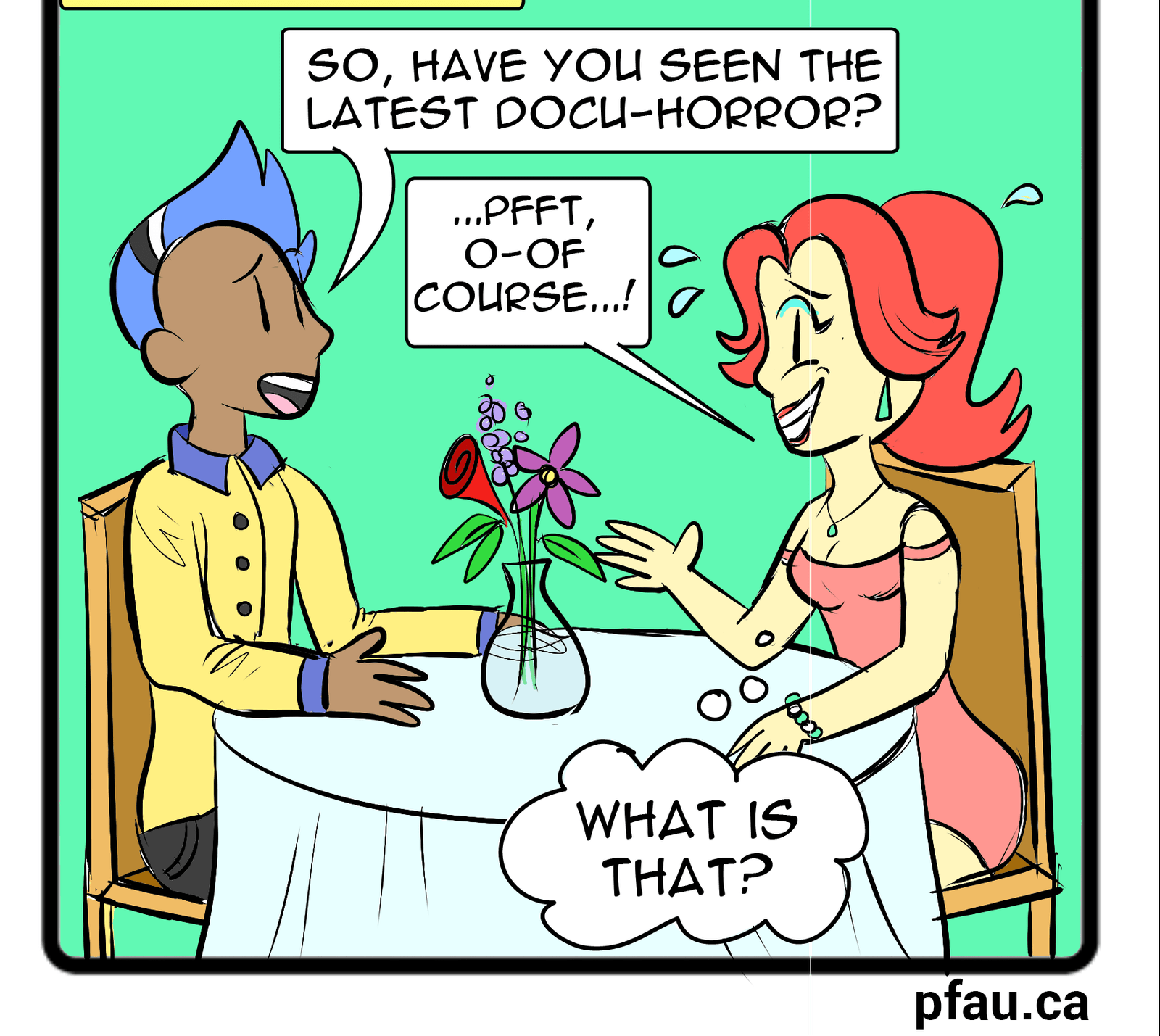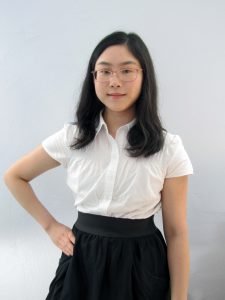This week’s episode is about the connection between mental health and creativity. Oftentimes students are so caught up with getting good grades or a prestigious job that they forget to have fun. They forget that learning is supposed to bring joy. They don’t realize that writing a research paper is actually a creative process, and it is possible to inject their own personality in the process. Most of all, they can easily buy into the idea that being successful means suppressing one’s emotions. But, feelings are not our enemy, they are our friend.

This week’s guest is Phoebe Taylor, artist, mindful mover, community maker and creative director of Okay Shoe. Her work explores the intersection of art, mindfulness, intuition and movement. Okay Shoe works collaboratively with artists to create stuff + space for feeling okay. My work as a visual artist utilizes zines and other modes of public art and installations. She believes one good rock show can change the world, art is for everyone to make and enjoy, and everyone deserves to feel good in their body, even you.
_
How do you think creativity plays a role in self-care and mental wellness?
Yeah. Oh man. I don’t really feel like we live in a world that really allows any space for creativity and when it does, it’s like it looks a very specific way. You know, like art goes in a gallery and you know, who’s creating art and who’s who’s in control of those things. I think we have a very narrow idea of and I think you would read that in my intro I really do believe like all humans are creative beings. And there’s just every everything in the whole world that tell us not to be creative. And I asked a lot of people kind of like, you know, talking about how I work as an artist and when I’m working with individuals as well. I asked people it’s like, well, who told you that you can’t be creative? Because I think like when we talk when we talk a lot about you know, kind of core beliefs and and all those things. It’s like, oh, wait a second, like Who put this here? Who put the seed in me like who watered it? And I think a lot of the time it’s like well, meaning, you know, whether it’s a parents teachers a real life person or not, you know, maybe on the television. I mean, I could make a list of kajillion systems to be creative. So yeah, I when I think about that, I grew up as a pretty creative child. I feel very lucky
I don’t feel like we live in a world that really allows any space for creativity, and when it does, it looks a very specific way. Like art goes in a gallery and who’s controlling that idea of art is very narrow. There’s also a lot in the world that tells us not to be creative. I work with a lot of individuals and one of the main questions I ask them is – “Who told you that you can’t be creative?” It comes down to core beliefs and how they impact us. Who put this belief here? We put the seed in me and watered it? A lot of time it is well-meaning parents and teachers, or even television.
Fortunately, I grew up as a pretty creative kid. My parents were artists and I feel very lucky to have had that outlet. Creativity is really a tribute to children. As children, we need care and play. Being creative links to our ability to play and connect with our emotional selves. If we had our first grade teacher following us around everyday reminding us of important life lessons like share, take a break, have a nap, eat a snack. It’s all very basic self-care techniques.
The best way to tap into my needs that I’ve found is medication. I love that. I would say take a breath, I would say pause to my clients. They know it’s hard. I’m also a meditation teacher. I think our effort is in trying and paying attention. Pay attention to what you pay attention to and pause and check in with your feelings like – Do I do I need a glass of water? Do I need to have a nap? Do I need to go and doodle? We stay connected to our creativity by staying connected to ourselves.
I know that you run a workshop Finding Play in Creativity. Tell us what this workshop is about.
“Finding Play and Creativity” is an approach that I use in the individual workshops that we host through Okay Shoe. Specifically, every month we host Okay Hang online. I usually start with an opening question to start the process of reflection as people are logging into the Zoom room. Instead of asking people – “How are you?” – where we expect an answer of “good” or “okay” – I ask something deeper and more meaningful.
I also create a space where people can create whatever they want or be who they are feeling that day. There is no pressure to create. It’s about finding playfulness and supporting each other through our creative processes.
How do you think students who are struggling with the pressure and stress of assignments could benefit from some of the things you teach in this workshop?
We actually do often have students drop into our workshops who are stuck on projects, like grant applications or school applications. They need a space where they can just say – “I don’t know what I’m doing right now with this.” I don’t know what I’m writing. I just need an external infusion of inspiration of some kind. Sometimes, the workshop helps the person to kickstart their writing process. Other times, they are just sitting there doodling on the back of a card for an hour.
Doodling is so amazing for our brains. Again, I’m not a scientist. However, I have read a lot of interesting science around it. It gives our brain a space to just kind of wander around. It is in this space where ideas come from. My favorite director, David Lynch, talks about his process of develoing ideas as “going fishing”. He calls ideas “fish”. He says you have to go out on a dock, sit, and quietly go fishing. Doodling or Okay Hang or morning pages is my fishing process. I can go back and evaluate my process and ask myself questions like: What keeps coming up? What’s the idea here? What am I actually thinking about? What is the threat here? Am I just interested in oceanic life? Maybe I need to go write my dissertation on this? Elizabeth Gilbert talks about going back to her morning pages and seeing that she continually talks about learning Italian and decides that she’d better go to Italy. A whole book – Eat, Pray, Love – came out of that process of self-reflection and evaluation. So you never know where these seeds are going to come from. You need to give yourself and your brain space to wander around and go fishing.
What tips or strategies would you have for someone staring down writer’s block/creative block?
From my experience, when you’re just so deep in the weeds of what’s going on, it can be hard to know what to write. When I am stuck, it’s hard to dig into what I am trying to accomplish. Walking away and coming back to it can help me to reset. It reminds me of what the nugget of thing is. I, then, try to write towards that nugget. Taking a mental break and using the other side of the brain makes it easier to come back to the task.
Recommended Books and Resources
Thank you, Phoebe, for sharing the excellent advice with us and our readers!
Missed Podcast? Watch Video Here:
_
For more advice about writing, check out our weekly, podcast, videos, or subscribe to our monthly newsletter.
_
To get more help with your assignments, book a 20 minute discovery session with us and start your journey to reaching your full potential on the page, and in life.
Both the written, visual, audio, and audiovisual content of this post has been created by and is the intellectual property of Lisa Pfau and PFAU Academic Writing. Please do not replicate any of the above content without our consent. However, please do feel free to share this post and its authorship widely.

